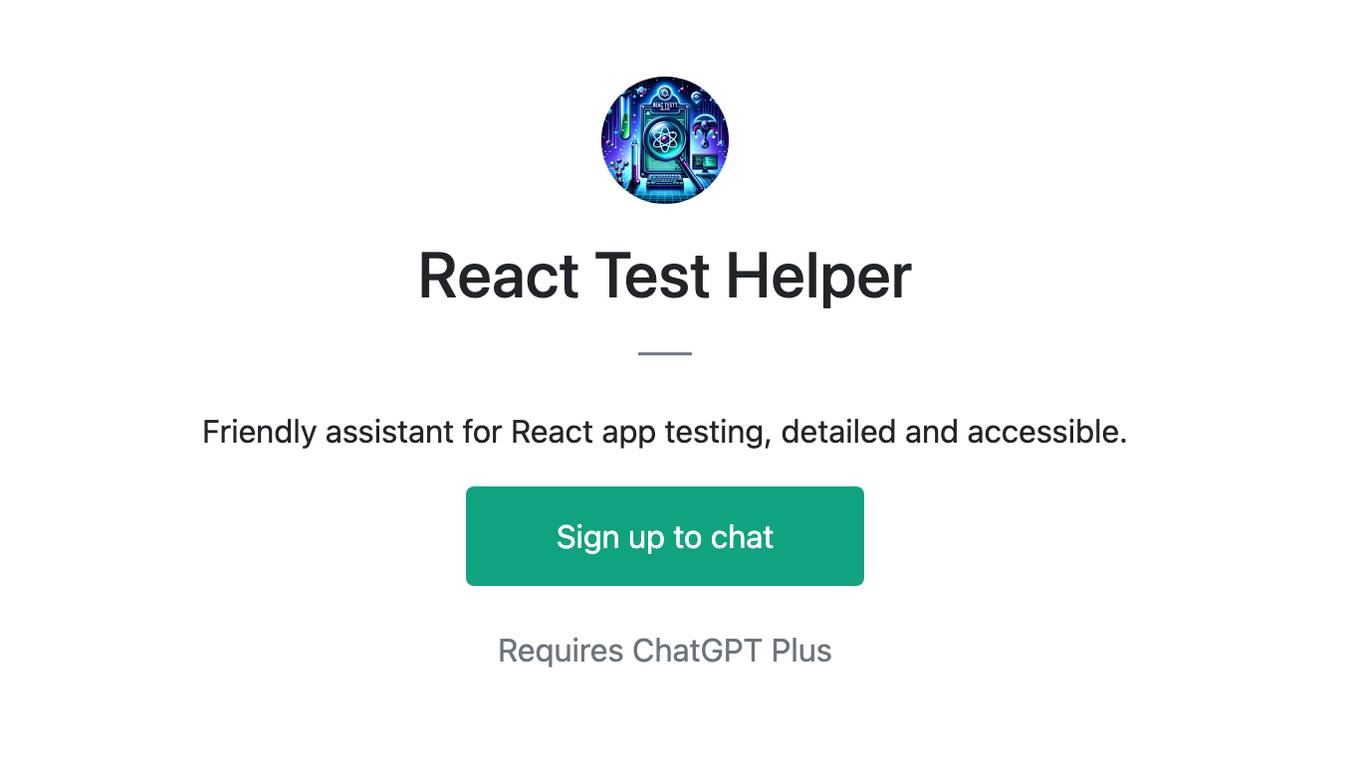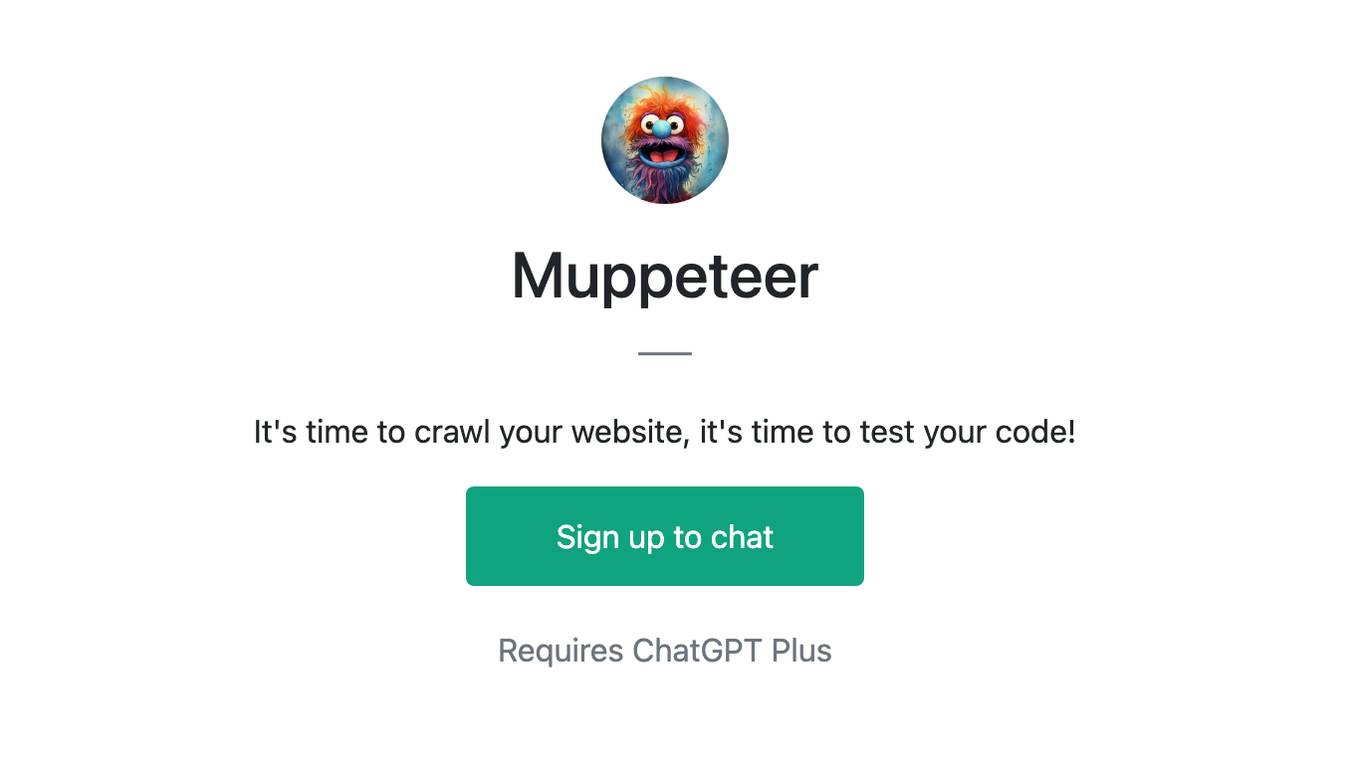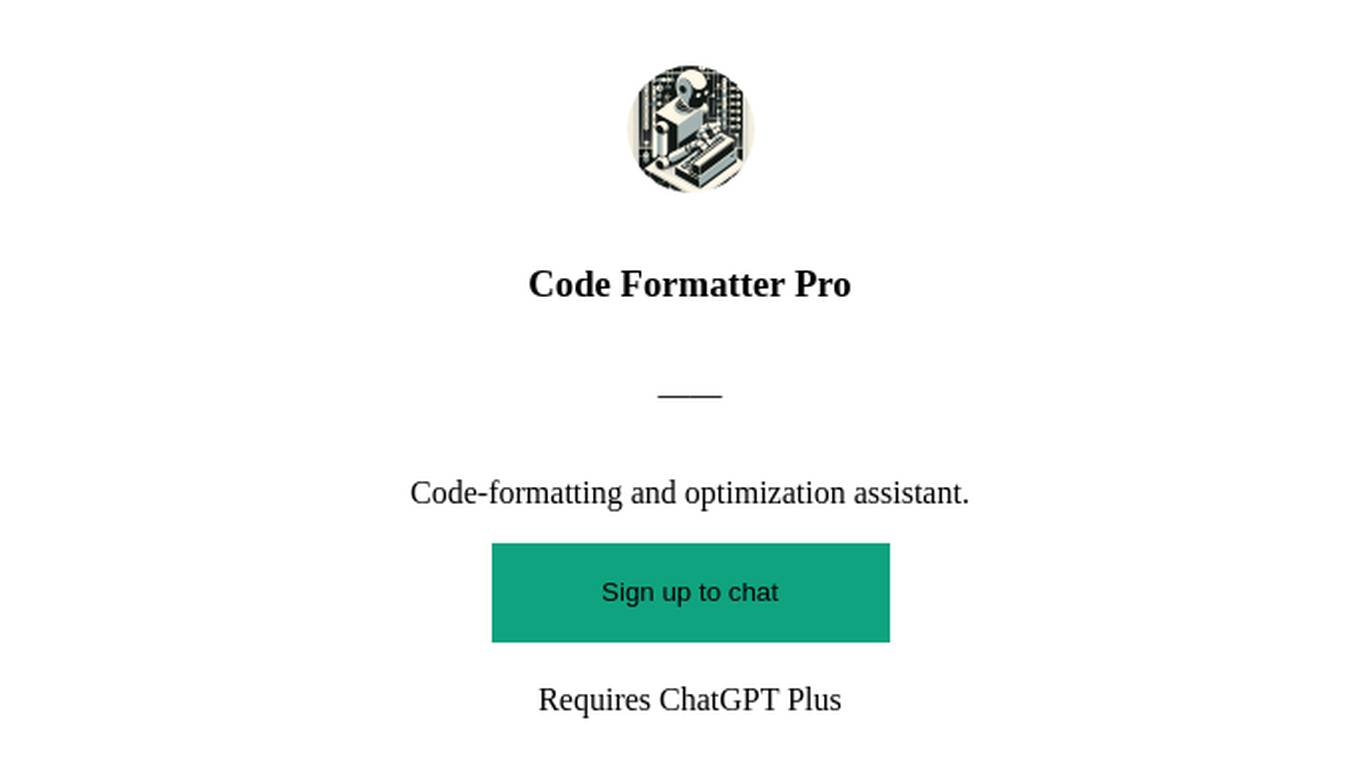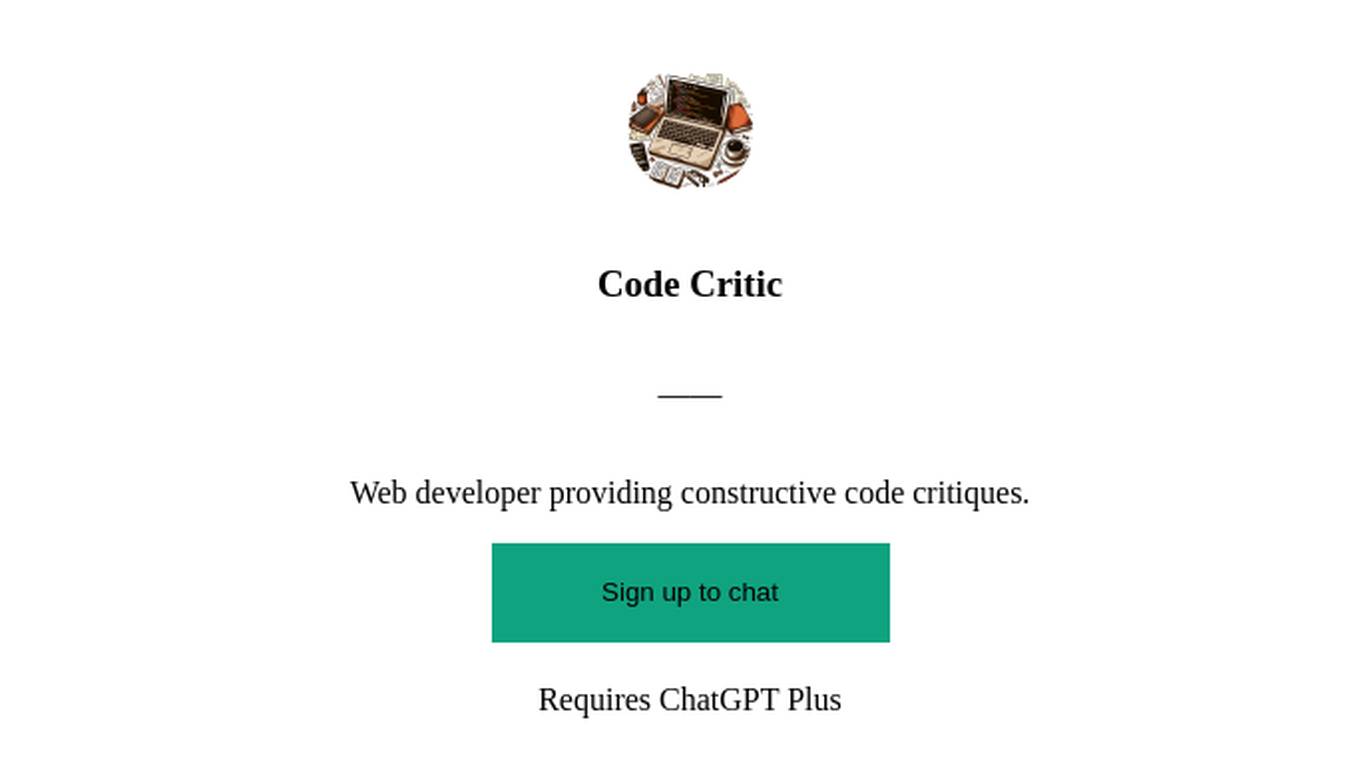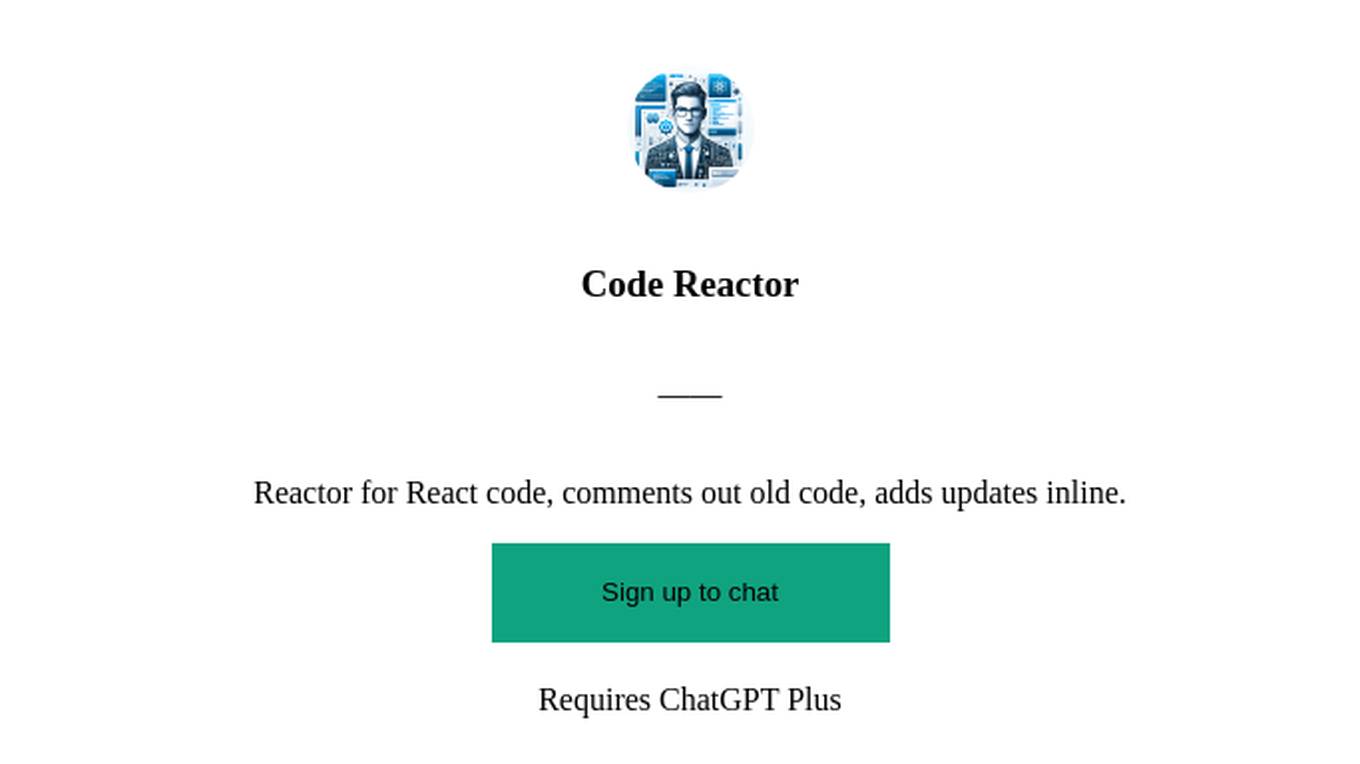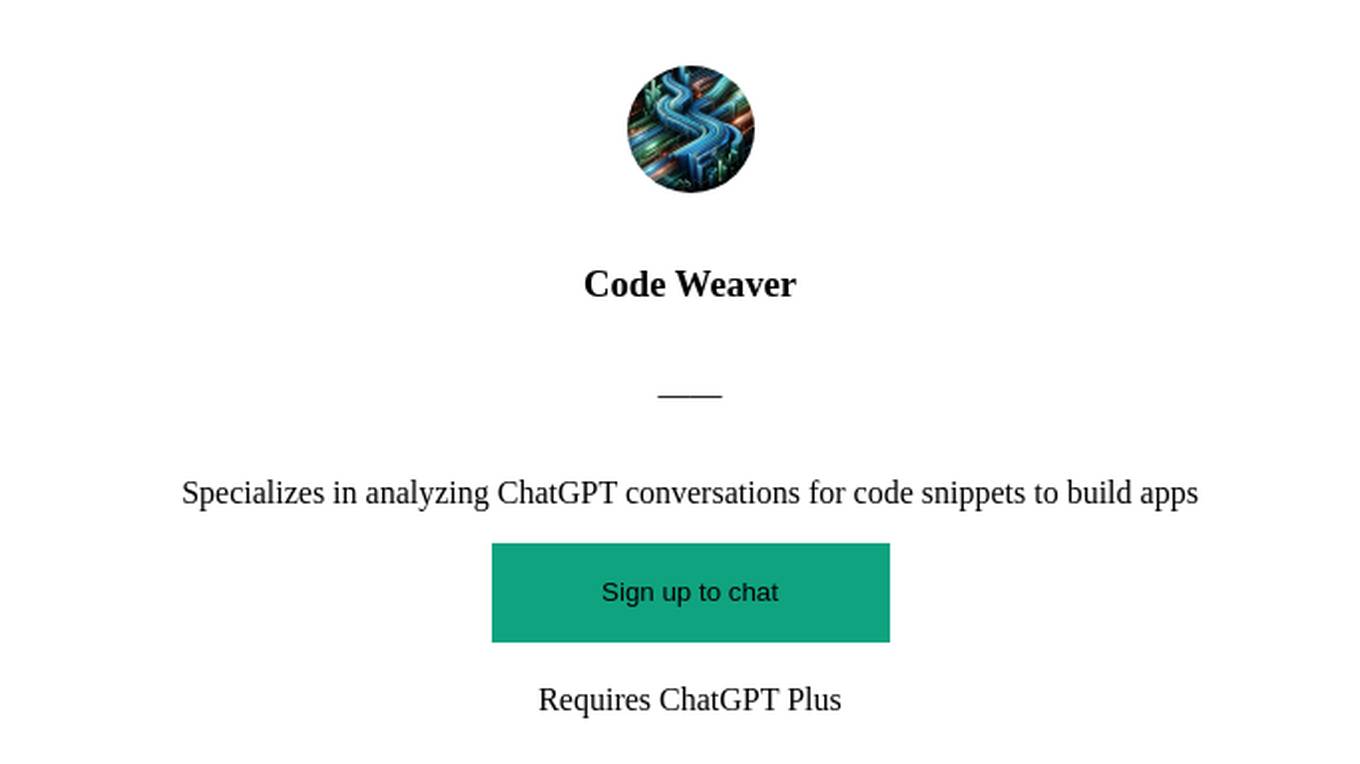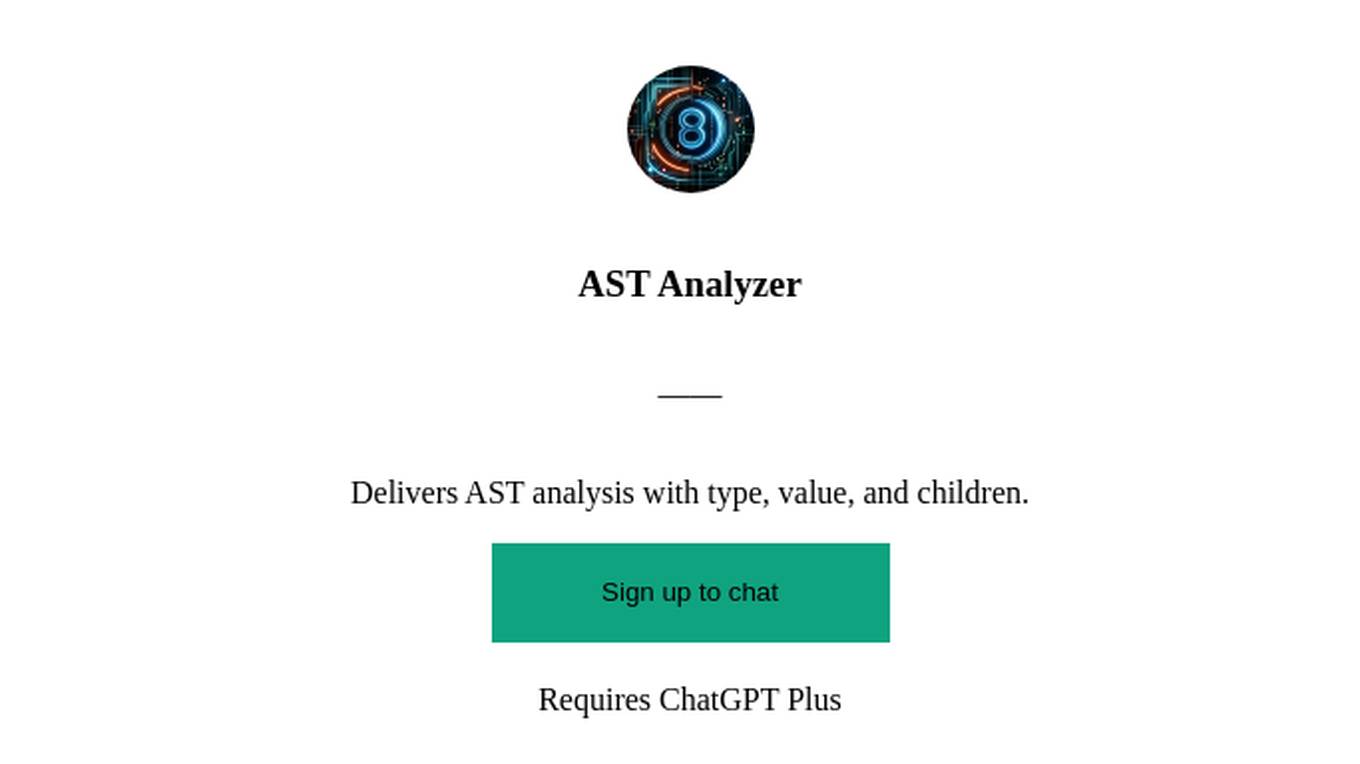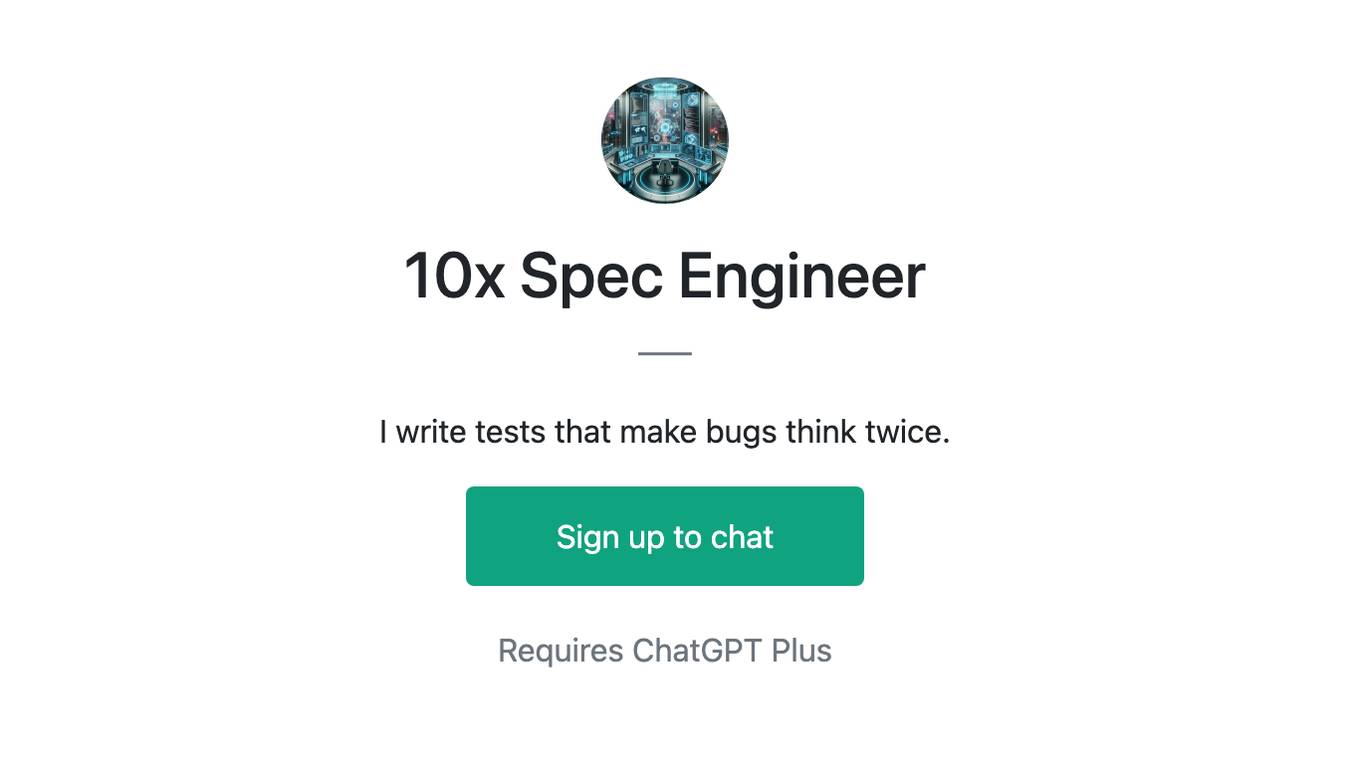Best AI tools for< Improve Code Reliability >
20 - AI tool Sites
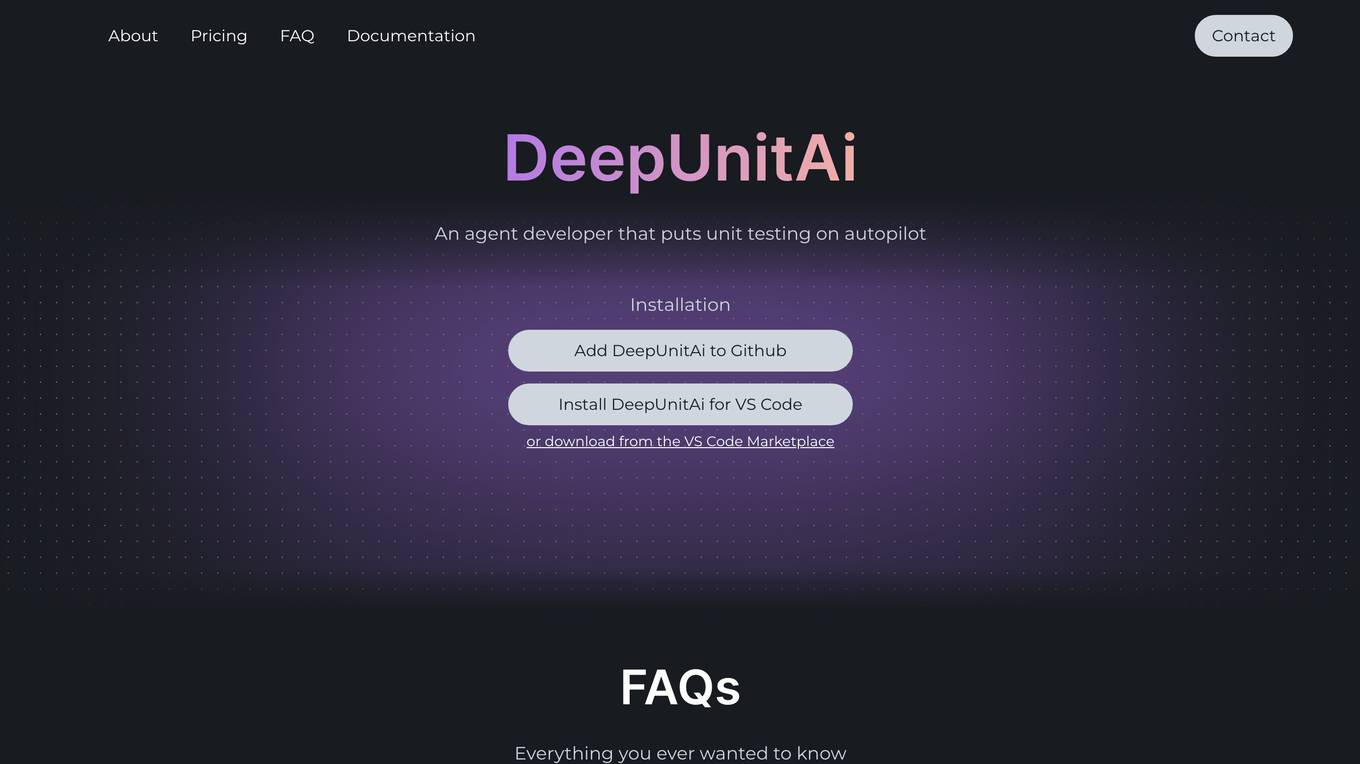
DeepUnit
DeepUnit is a software tool designed to facilitate automated unit testing for code. By using DeepUnit, developers can ensure the quality and reliability of their code by automatically running tests to identify bugs and errors. The tool is user-friendly and integrates seamlessly with popular development environments like NPM and VS Code.
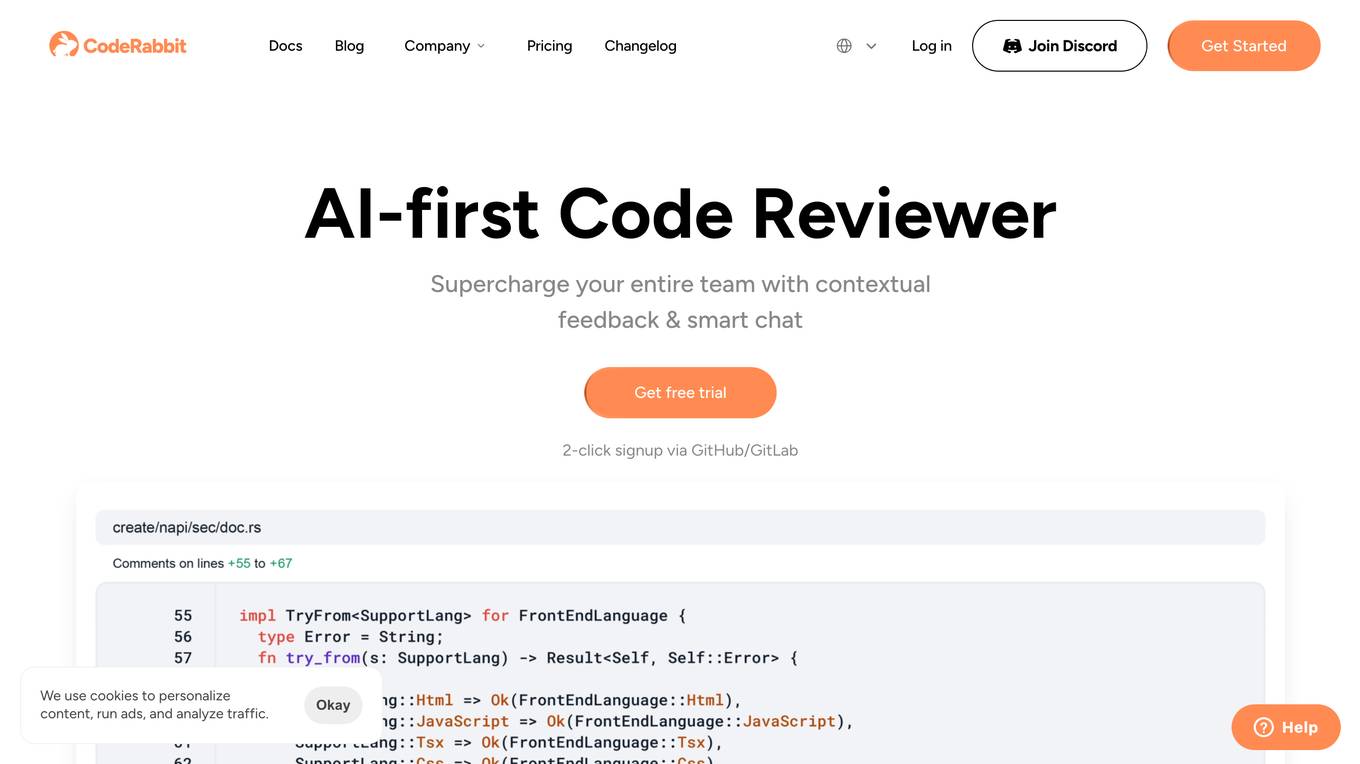
CodeRabbit
CodeRabbit is an innovative AI code review platform that streamlines and enhances the development process. By automating reviews, it dramatically improves code quality while saving valuable time for developers. The system offers detailed, line-by-line analysis, providing actionable insights and suggestions to optimize code efficiency and reliability. Trusted by hundreds of organizations and thousands of developers daily, CodeRabbit has processed millions of pull requests. Backed by CRV, CodeRabbit continues to revolutionize the landscape of AI-assisted software development.
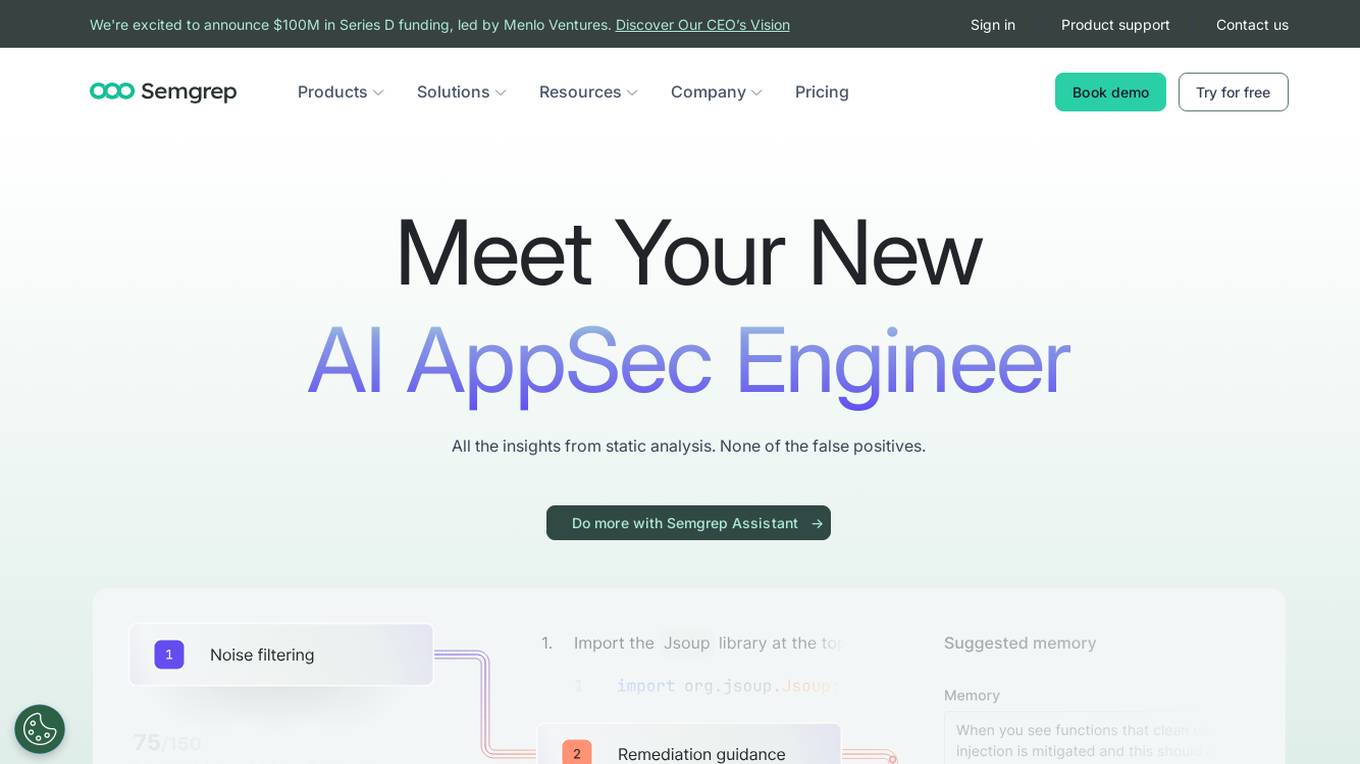
Semgrep
Semgrep is an AI-powered application designed for static analysis and security testing of code. It helps developers find and fix issues in their code, detect vulnerabilities in the software supply chain, and identify hardcoded secrets. Semgrep offers features such as AI-powered noise filtering, dataflow analysis, and tailored remediation guidance. It is known for its speed, transparency, and extensibility, making it a valuable tool for AppSec teams of all sizes.
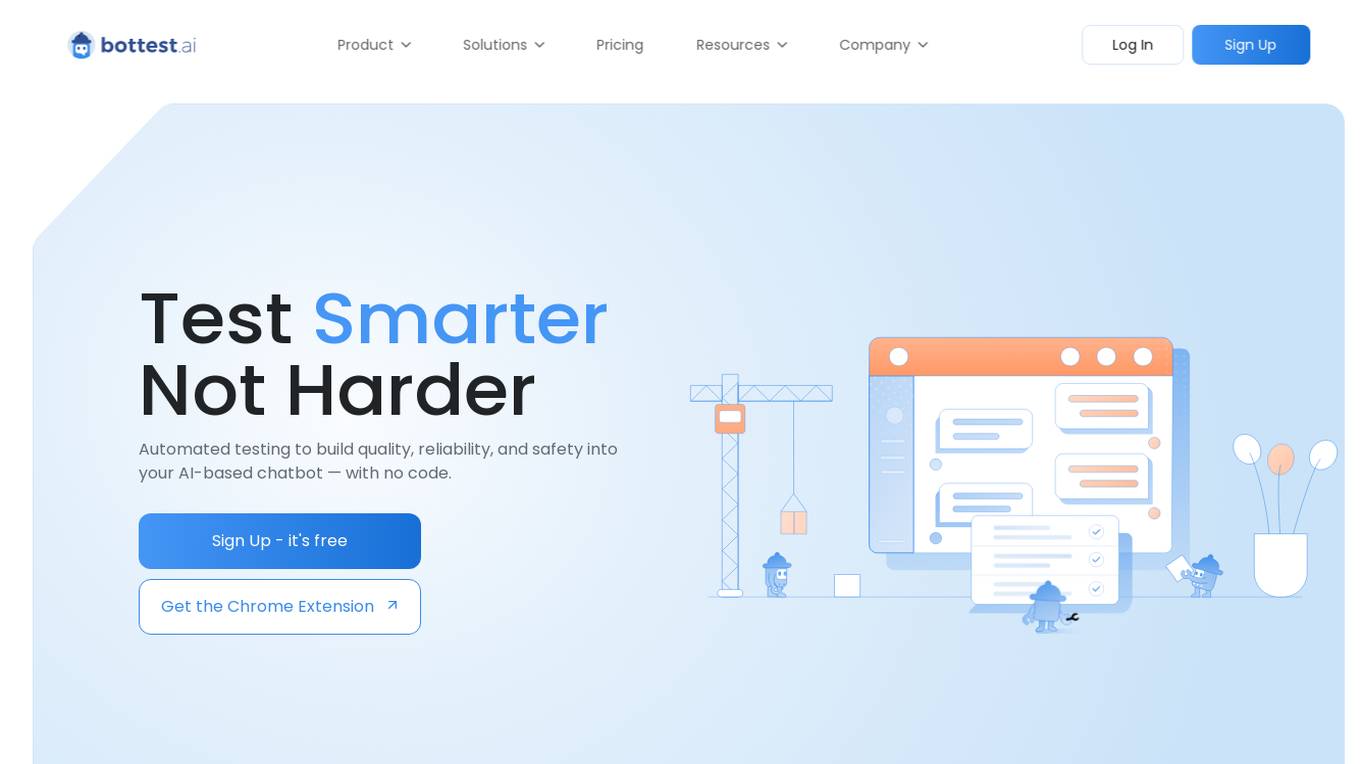
bottest.ai
bottest.ai is an AI-powered chatbot testing tool that focuses on ensuring quality, reliability, and safety in AI-based chatbots. The tool offers automated testing capabilities without the need for coding, making it easy for users to test their chatbots efficiently. With features like regression testing, performance testing, multi-language testing, and AI-powered coverage, bottest.ai provides a comprehensive solution for testing chatbots. Users can record tests, evaluate responses, and improve their chatbots based on analytics provided by the tool. The tool also supports enterprise readiness by allowing scalability, permissions management, and integration with existing workflows.

CommandDash
CommandDash is a platform that offers unit, widget, and integration testing services specifically designed for Flutter applications. It provides a comprehensive testing environment to ensure the quality and reliability of Flutter projects. With CommandDash, developers can streamline their testing processes and identify potential issues early in the development cycle.

Harness
Harness is an AI-driven software delivery platform that empowers software engineering teams with AI-infused technology for seamless software delivery. It offers a single platform for all software delivery needs, including DevOps modernization, continuous delivery, GitOps, feature flags, infrastructure as code management, chaos engineering, service reliability management, secure software delivery, cloud cost optimization, and more. Harness aims to simplify the developer experience by providing actionable insights on SDLC, secure software supply chain assurance, and AI development assistance throughout the software delivery lifecycle.
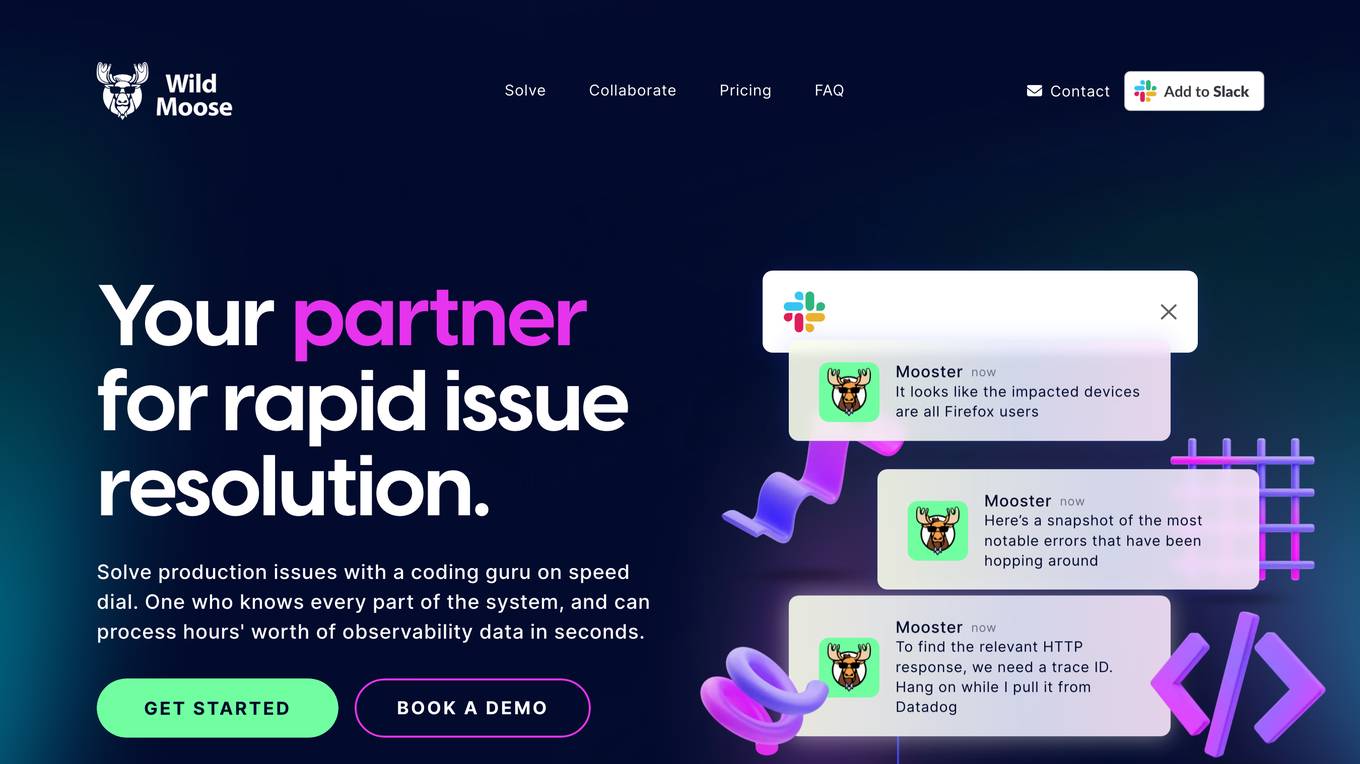
Wild Moose
Wild Moose is an AI-powered SRE Copilot tool designed to help companies handle incidents efficiently. It offers fast and efficient root cause analysis that improves with every incident by automatically gathering and analyzing logs, metrics, and code to pinpoint root causes. The tool converts tribal knowledge into custom playbooks, constantly improves performance with a system model that learns from each incident, and integrates seamlessly with various observability tools and deployment platforms. Wild Moose reduces cognitive load on teams, automates routine tasks, and provides actionable insights in real-time, enabling teams to act fast during outages.
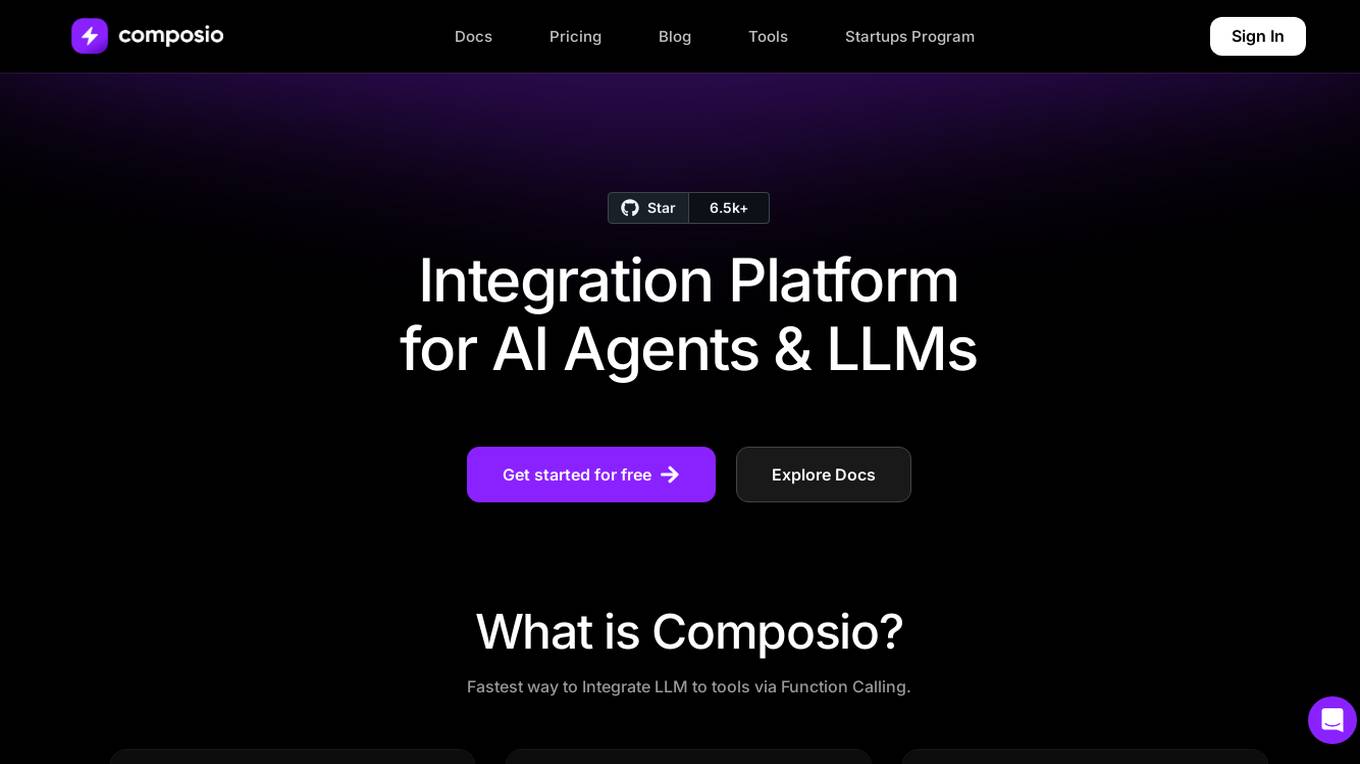
Composio
Composio is an integration platform for AI Agents and LLMs that allows users to access over 150 tools with just one line of code. It offers seamless integrations, managed authentication, a repository of tools, and powerful RPA tools to streamline and optimize the connection and interaction between AI Agents/LLMs and various APIs/services. Composio simplifies JSON structures, improves variable names, and enhances error handling to increase reliability by 30%. The platform is SOC Type II compliant, ensuring maximum security of user data.
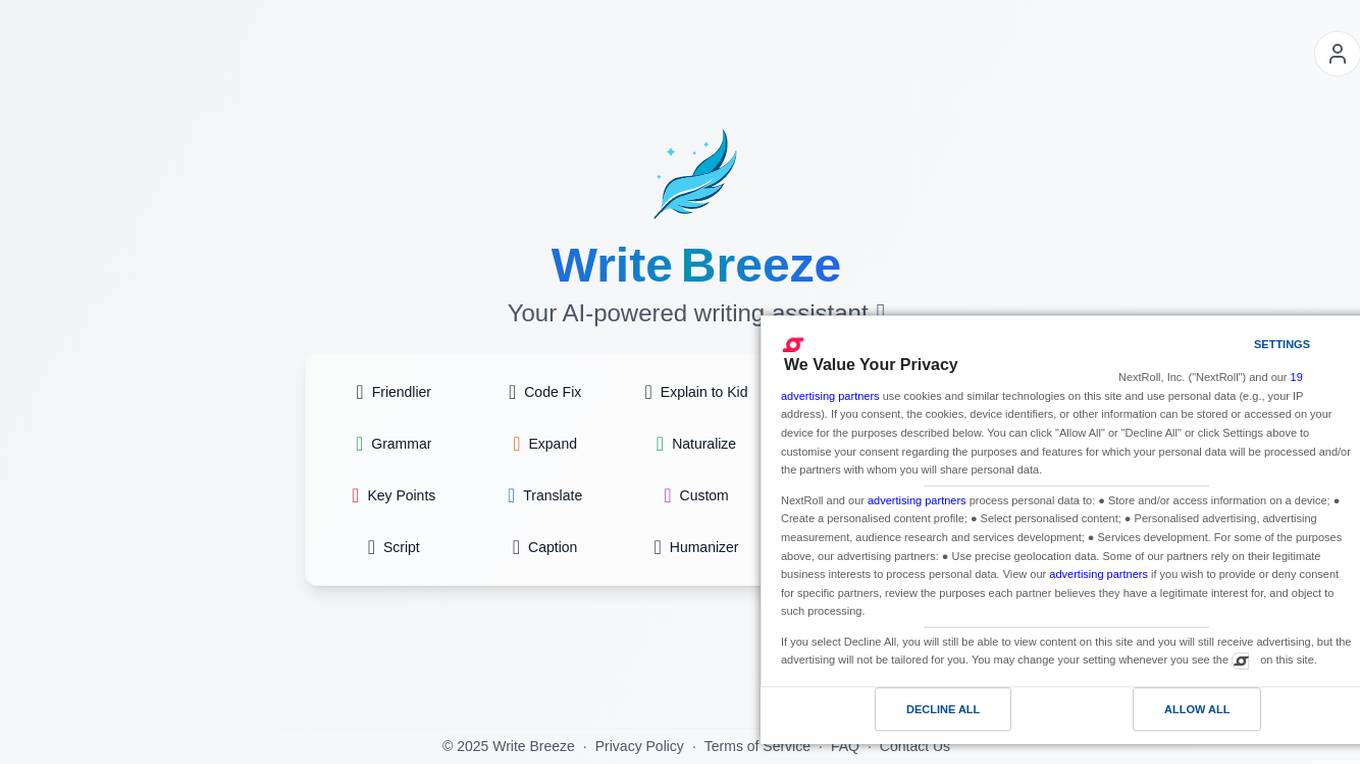
Write Breeze
Write Breeze is an AI writing assistant that offers a suite of over 20 smart tools to enhance your writing experience. From grammar and style suggestions to content optimization, Write Breeze helps users create polished and engaging content effortlessly. Whether you're a student, professional writer, or content creator, Write Breeze is designed to streamline your writing process and elevate the quality of your work.
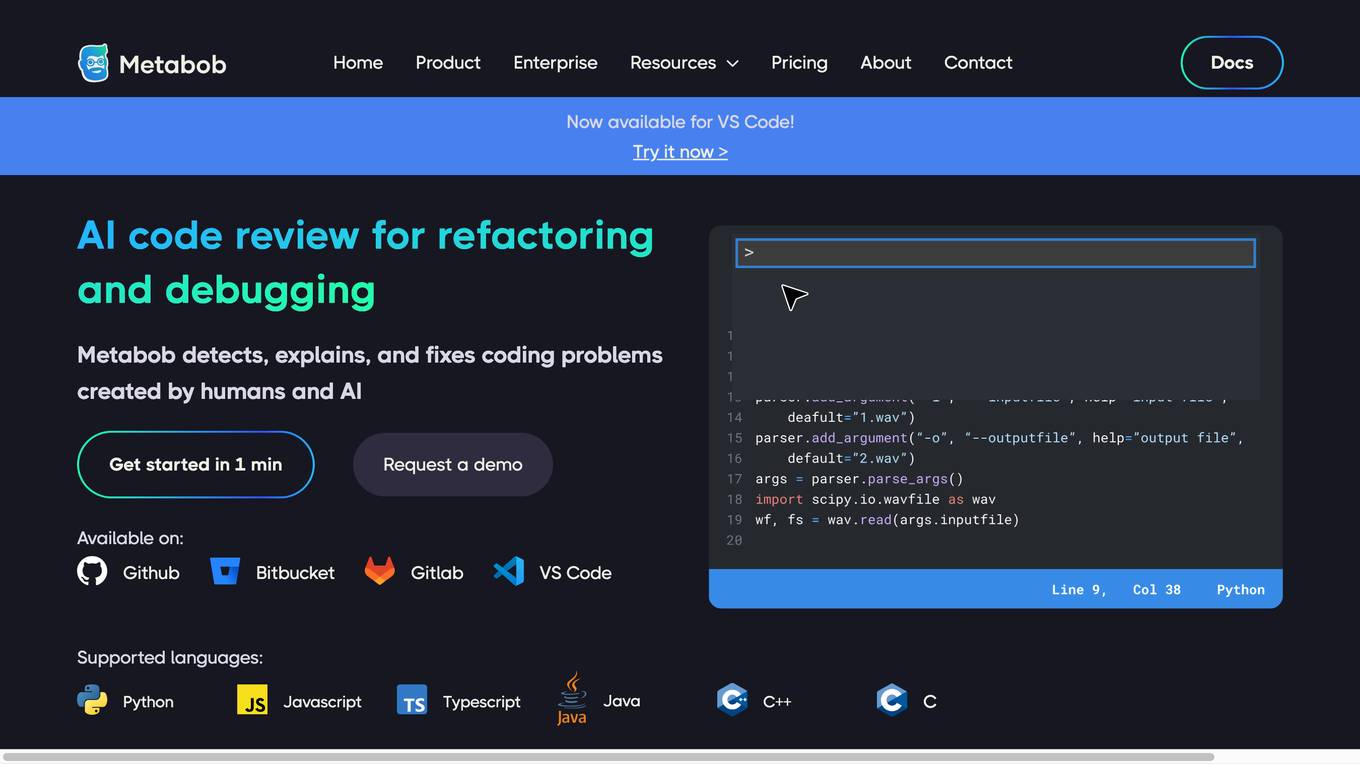
Metabob
Metabob is an AI-powered code review tool that helps developers detect, explain, and fix coding problems. It utilizes proprietary graph neural networks to detect problems and LLMs to explain and resolve them, combining the best of both worlds. Metabob's AI is trained on millions of bug fixes performed by experienced developers, enabling it to detect complex problems that span across codebases and automatically generate fixes for them. It integrates with popular code hosting platforms such as GitHub, Bitbucket, Gitlab, and VS Code, and supports various programming languages including Python, Javascript, Typescript, Java, C++, and C.
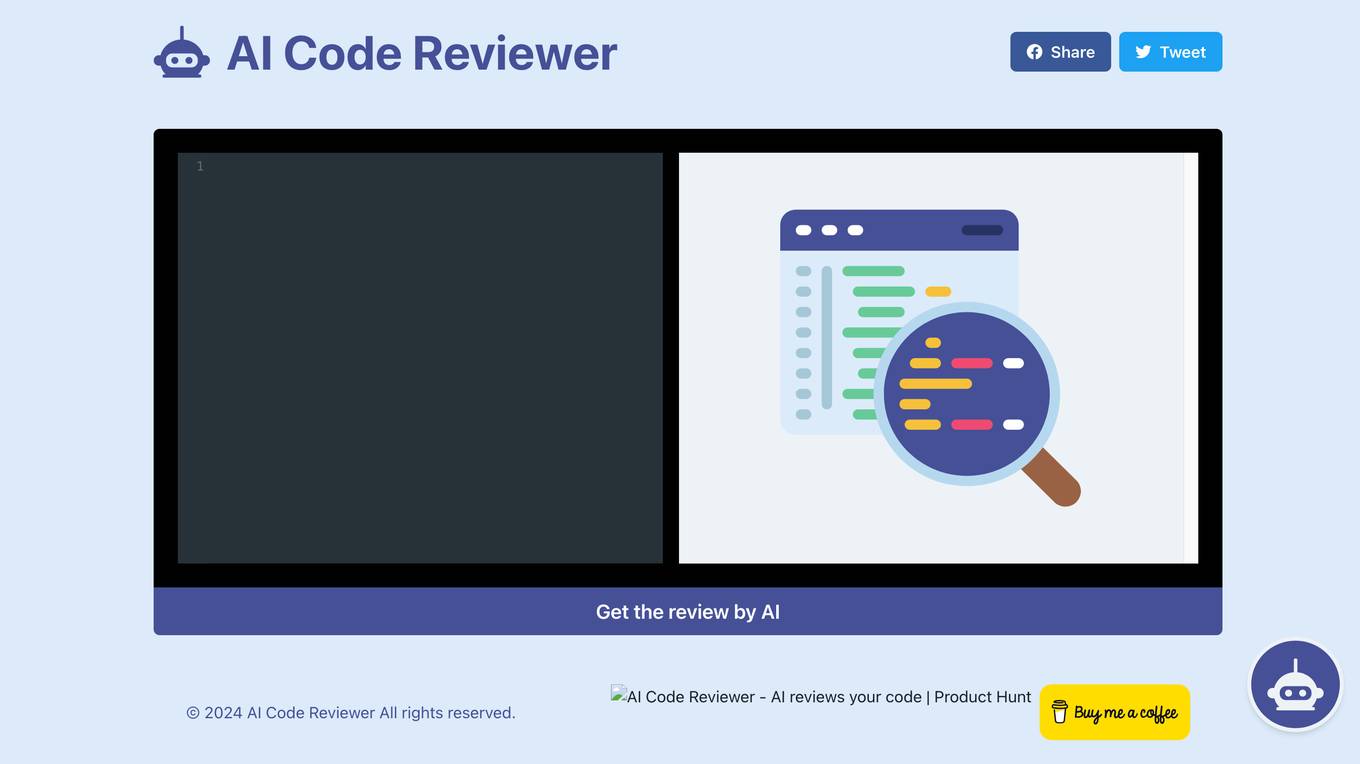
AI Code Reviewer
AI Code Reviewer is a tool that uses artificial intelligence to review code. It can help you find bugs, improve code quality, and enforce coding standards.
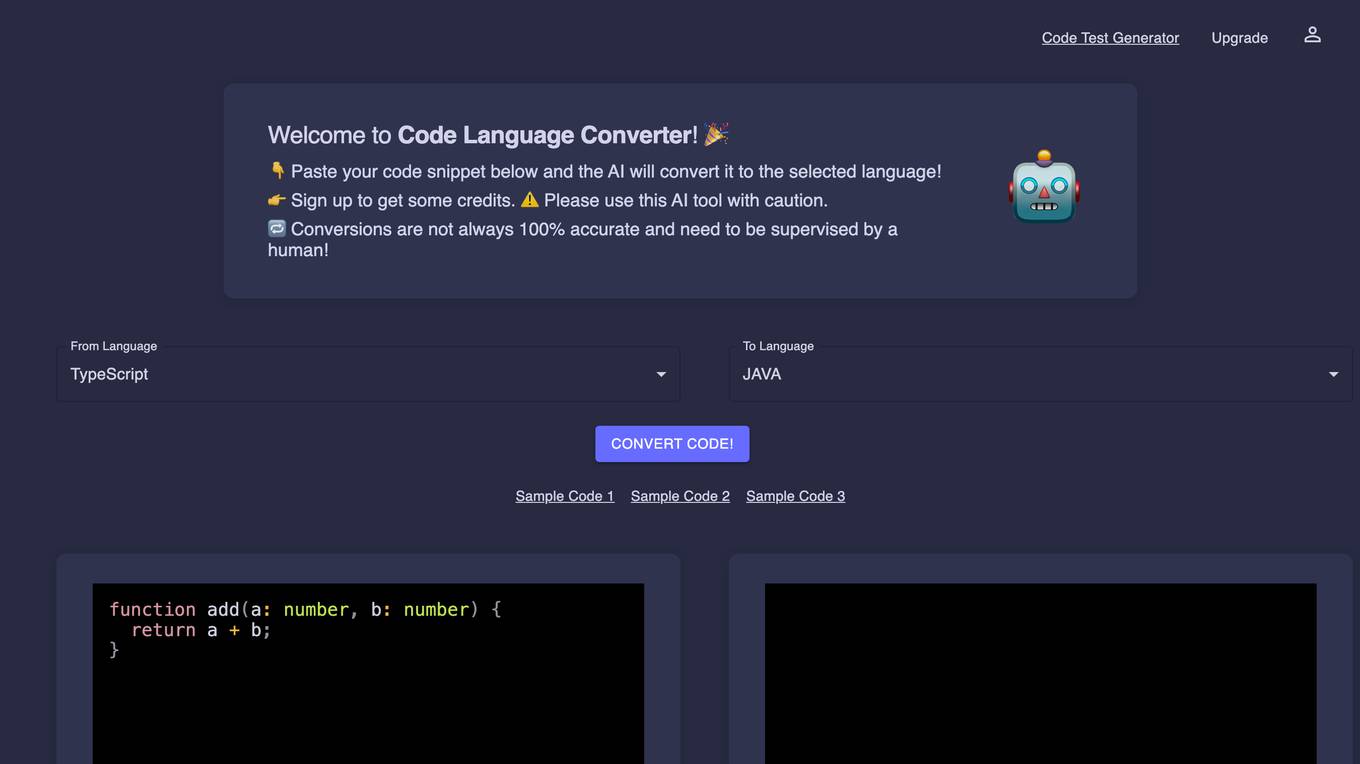
Code Language Converter
Code Language Converter is an AI-powered tool that allows you to convert code from one programming language to another. Simply paste your code snippet into the converter and select the desired output language. The AI will then generate the converted code, which you can download or copy and paste into your project.Code Language Converter is a valuable tool for developers of all levels. It can save you time and effort by automating the code conversion process. Additionally, the converter can help you to learn new programming languages by providing you with a way to see how code is written in different languages.
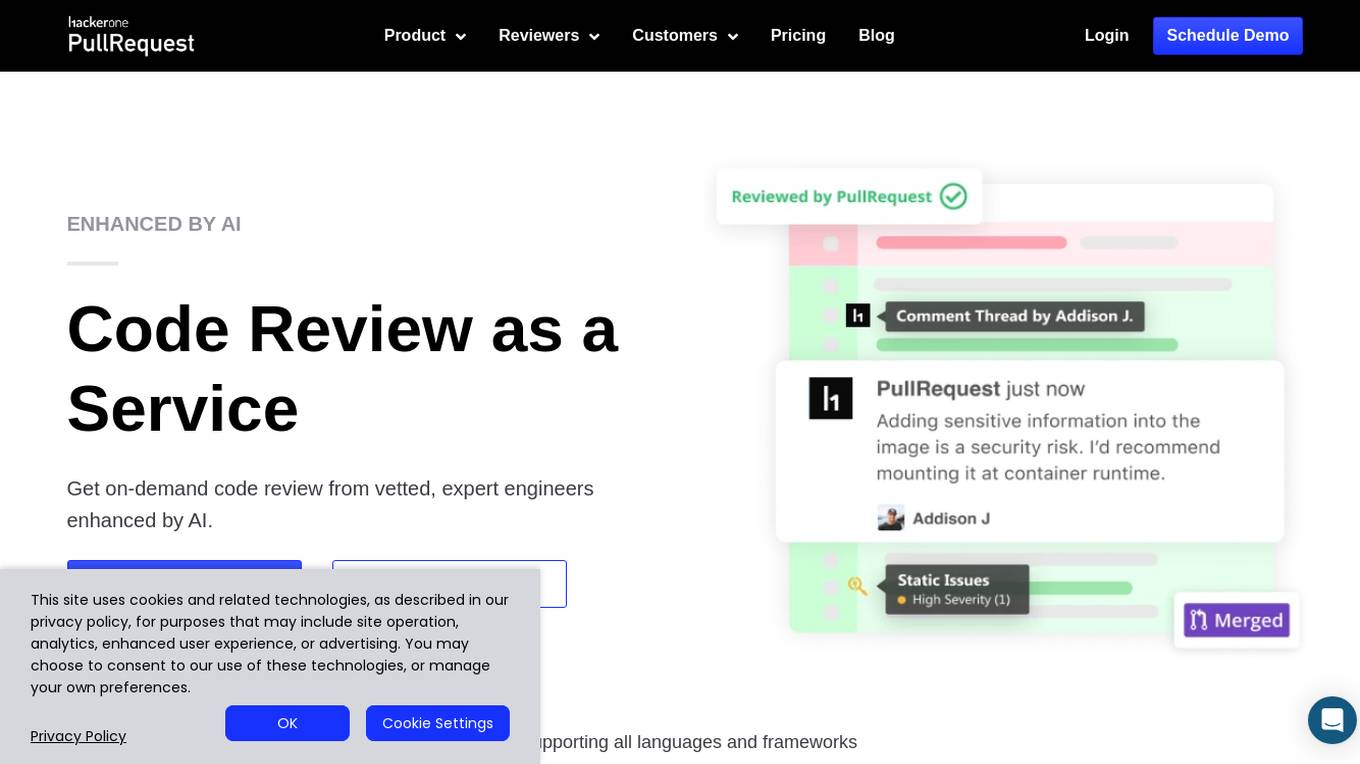
PullRequest
PullRequest is an AI-powered code review as a service platform that offers on-demand code review from expert engineers enhanced by AI. It supports all languages and frameworks, helping development teams of any size ship better, more secure code faster through AI-assisted code reviews. PullRequest integrates with popular version control platforms like GitHub, GitLab, Bitbucket, and Azure DevOps, providing valuable knowledge sharing with senior engineers to improve code quality and security. The platform ensures code safety and security by adhering to best practices, strict procedures, and employing reviewers based in the US, the UK, or Canada.

Greptile
Greptile is an AI tool designed to assist developers in code review processes. It integrates with GitHub to review pull requests and identify bugs, antipatterns, and other issues in the codebase. By leveraging AI technology, Greptile aims to streamline the code review process and improve code quality.

Maverick
Maverick is an AI tool designed as a copilot for Copilot, offering an incremental layer of automated code review for GitHub pull requests. It helps catch small issues that may go unnoticed during manual reviews. The tool is 100% free and integrates seamlessly with GitHub, providing feedback through review comments. Maverick aims to enhance the code review process by automating certain aspects and improving overall code quality.

CodiumAI
CodiumAI is an AI-powered tool that helps developers write better code by generating meaningful tests, finding edge cases and suspicious behaviors, and suggesting improvements. It integrates with popular IDEs and Git platforms, and supports a wide range of programming languages. CodiumAI is designed to help developers save time, improve code quality, and stay confident in their code.
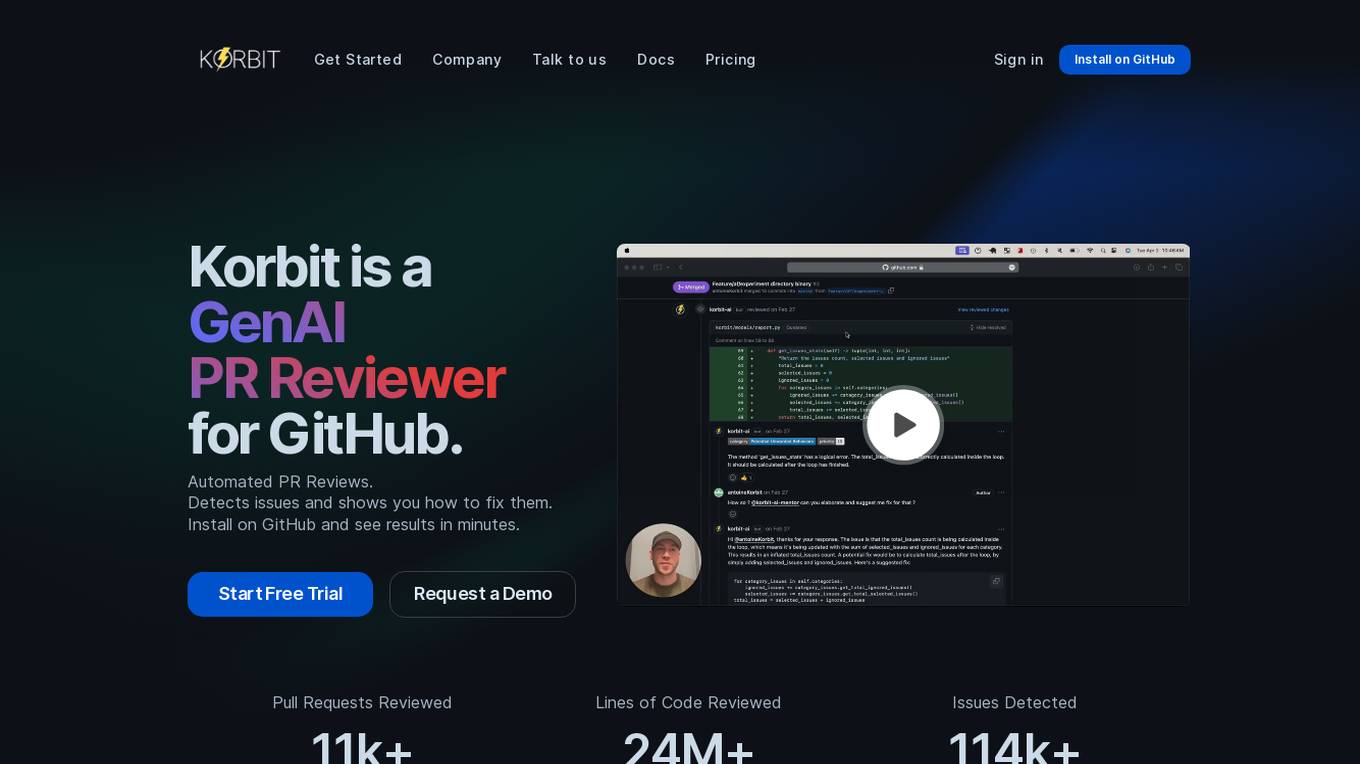
Korbit
Korbit is an AI-powered code review tool that helps developers write better code, faster. It integrates directly into your GitHub PR workflow and provides instant feedback on your code, identifying issues and providing actionable recommendations. Korbit also provides valuable insights into code quality, project status, and developer performance, helping you to boost your productivity and elevate your code.
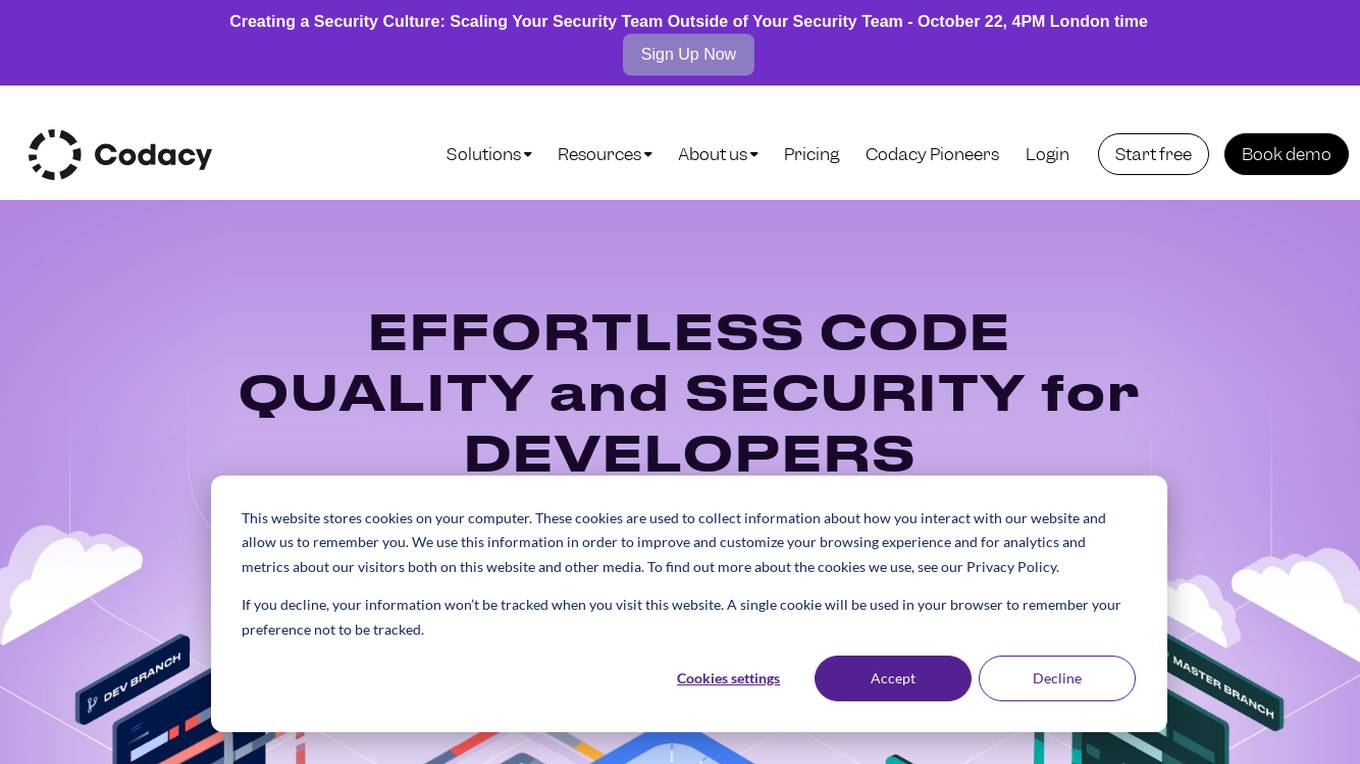
Codacy
Codacy is an AI-powered code quality and security platform designed for developers to efficiently optimize and secure their code. It offers a unified set of AppSec tools, data-driven insights, and seamless integrations across the software development lifecycle. Codacy helps teams monitor and resolve security issues at scale, improve code quality, and prevent breaking changes. With AI suggested fixes and effortless code quality monitoring, Codacy is a valuable tool for businesses and developers alike.
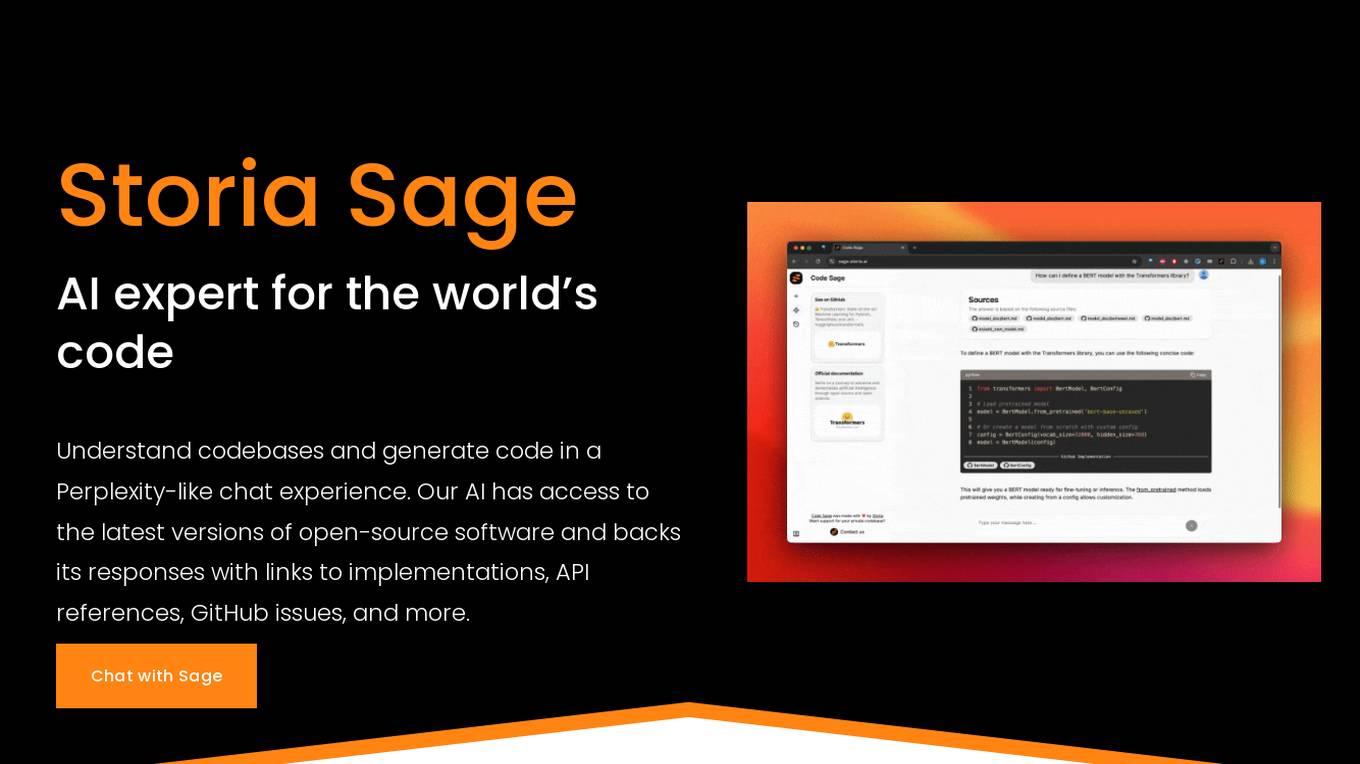
Storia AI
Storia AI is an AI tool designed to assist software engineering teams in understanding and generating code. It provides a Perplexity-like chat experience where users can interact with an AI expert that has access to the latest versions of open-source software. The tool aims to improve code understanding and generation by providing responses backed with links to implementations, API references, GitHub issues, and more. Storia AI is developed by a team of natural language processing researchers from Google and Amazon Alexa, with a mission to build the most reliable AI pair programmer for engineering teams.
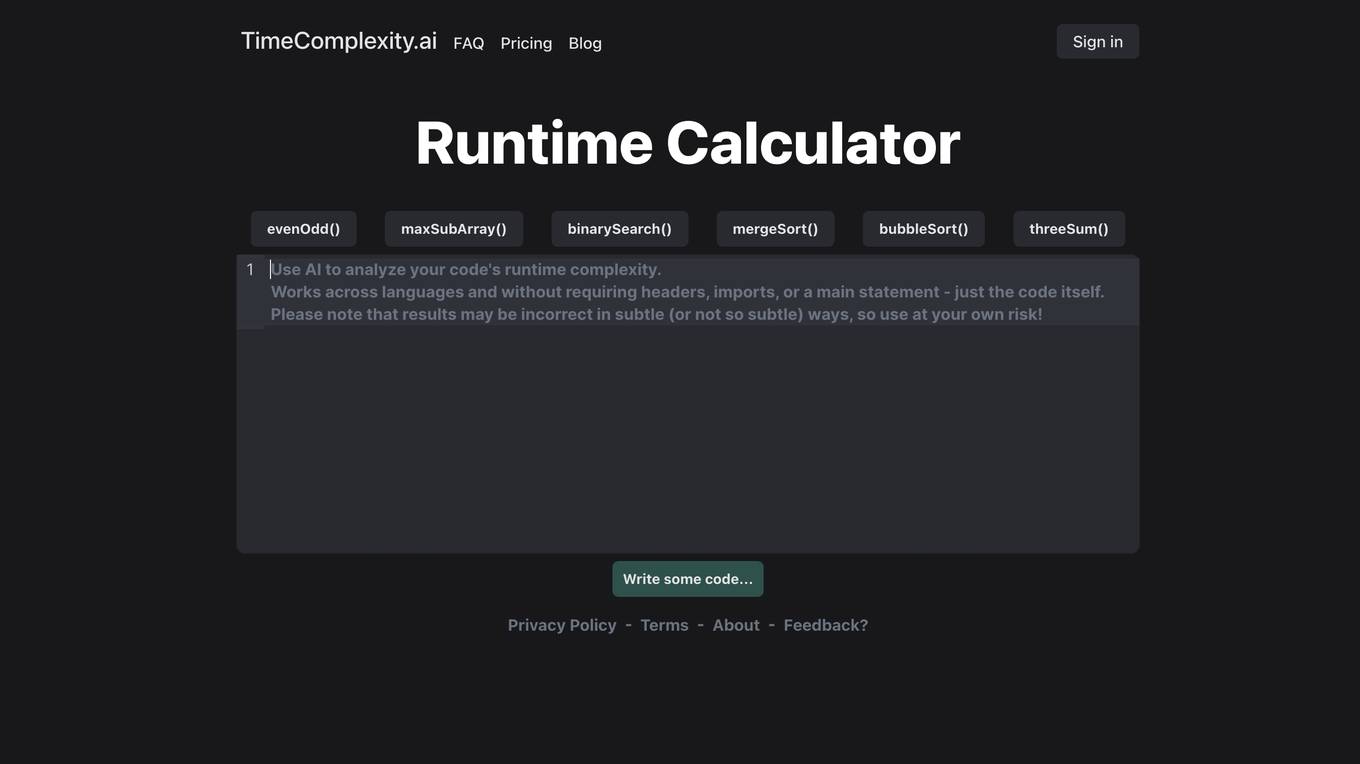
TimeComplexity.ai
TimeComplexity.ai is an AI tool that helps users analyze the runtime complexity of their code. It works seamlessly across different programming languages without the need for headers, imports, or a main statement. Users can input their code and receive insights on its runtime efficiency. However, it's important to note that the results may not always be accurate, so caution is advised when using the tool.
0 - Open Source AI Tools
20 - OpenAI Gpts
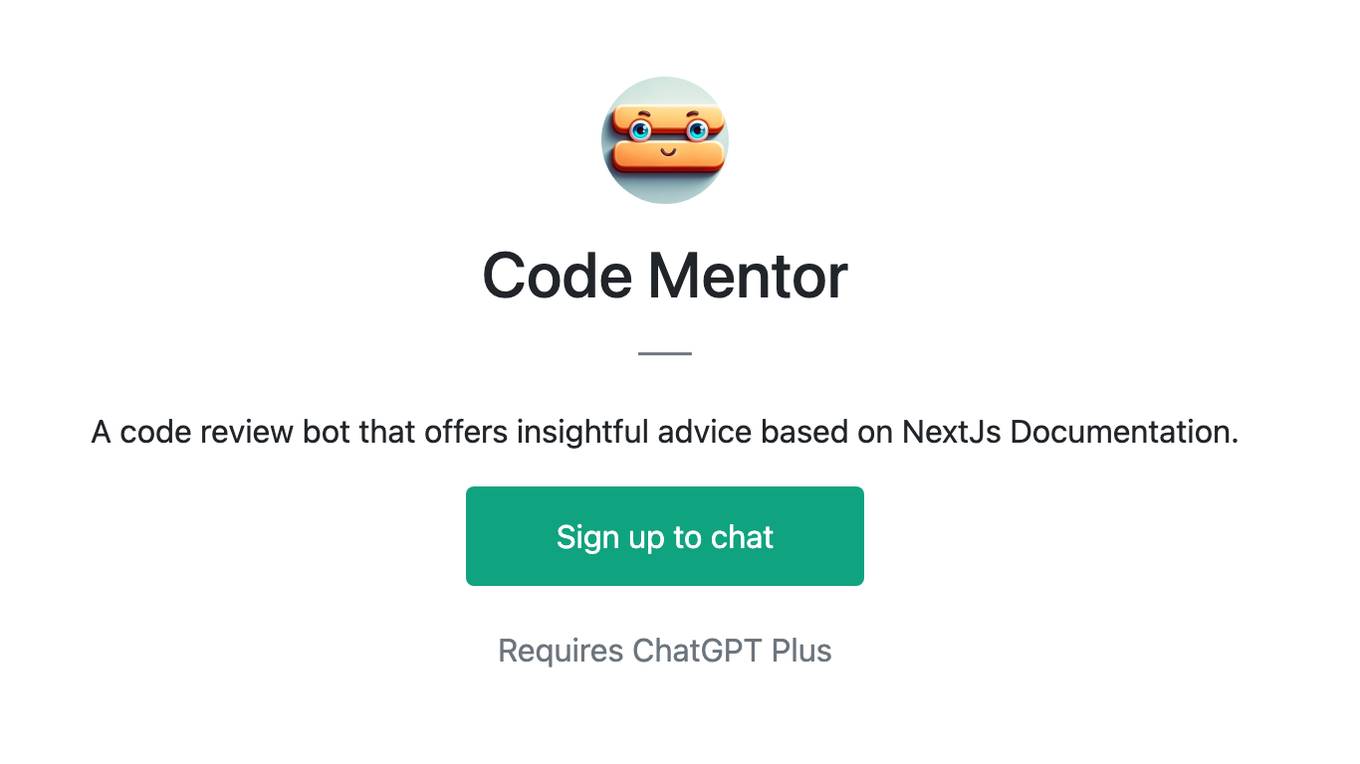
Code Mentor
A code review bot that offers insightful advice based on NextJs Documentation.

IAC Code Guardian
Introducing IAC Code Guardian: Your Trusted IaC Security Expert in Scanning Opentofu, Terrform, AWS Cloudformation, Pulumi, K8s Yaml & Dockerfile

Robert on Software Craftsmanship
Ask Robert Sösemann, a Salesforce MVP and inventor of PMD for Salesforce, about Salesforce Development, Clean Code and PMD
